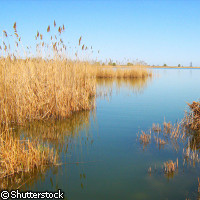Swedish scientists reveal the role of light in lakes
Countering the previously held opinion that productivity in lakes is determined by the availability of nutrient sources, new research has now shown that light is in fact responsible for lake production. The findings, published in the journal Nature, also suggest that the landscape of lakes will alter in years to come as a result of climate change. The study was conducted by researchers from Climate Impacts Research Centre (CIRC) and the Department of Ecology and Environmental Sciences at Umeå University in Sweden. The team compared clear mountain lakes with brown forest lakes to determine the sources of production. They define production as 'the rate of biomass synthesis in ecosystems' and as the essential characteristic that frames ecosystem function and management. 'In the brownest lakes, sunlight can't penetrate more than about two metres,' explained CIRC's Associate Professor Jan Karlsson. 'In clear mountain lakes, the light can reach down to depths of 15 to 20 meters and lead to high production of algae on lake bottoms.' Most lakes worldwide are relatively small and lacking in nutrients. The brown colour of lakes is attributed to the organic material that is washed in from nearby land. According to the researchers, it is this dense colour that inhibits light from making its way to the bottom, making it difficult to reach the algae that need sunlight for photosynthesis. This hinders the ecosystem cycle, since algae on the lake bed supply food to the animals that are, in turn, sources of food for the lake's fish. The researchers conclude, 'These results are inconsistent with the idea that nutrient supply primarily controls lake productivity, and we propose that a large share of the world's unproductive lakes, within natural variations of organic carbon and nutrient input, are limited by light and not by nutrients.' They also predict that lake production will be disrupted by future climate change. One scenario, for instance, suggests that hotter temperatures and melting of permafrost could mean rapid changes to the way organic material is transported to lakes. 'The climate impacts lakes, and in the long run we can expect more brown lakes with reduced productivity,' said Professor Karlsson. The results therefore not only reveal a new way of understanding lake ecosystem function, but also have implications for understanding responses to future environmental changes.
Countries
Sweden



